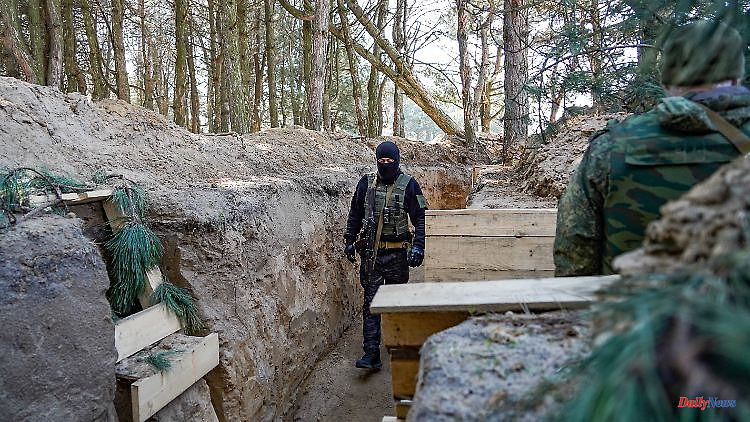According to the British secret service, the war in Ukraine is becoming increasingly brutal. Accordingly, the lack of ammunition is causing problems for the Kremlin troops, which is why the Russian soldiers probably resort to very simple means in close combat.
According to British military experts, bottlenecks in weapons and ammunition on the Russian side are now having bizarre consequences in the Ukraine war. In the daily short report, the British Ministry of Defense wrote that Moscow probably used ordinary field spades in close combat.
The background is statements by Russian reservists who are said to have stated that they were only sent with "guns and shovels" to attack a concrete Ukrainian base. According to the British, the MPL-50 type field spade - actually an entrenchment tool - which is commonly used by the Russian armed forces, is a myth that elevates it to a deadly weapon. It has hardly been further developed since its introduction in 1869.
Combat use is a sign of brutal and low-tech hand-to-hand combat, which recent indications indicate are becoming more common in Ukraine. The reason is likely that Russia wants to continue to carry out attacks despite a lack of ammunition.
Wagner boss Yevgeny Prigozhin repeatedly complained about a lack of ammunition. In a recent video, he threatened to withdraw his mercenaries from Bachmut. But then the flanks would break.
"If Wagner withdraws from Bachmut today, the front line will collapse," he warned in an incendiary speech. Such a withdrawal would trigger a "spring effect," with Ukrainian forces penetrating the Russian-occupied, self-proclaimed People's Republics from all sides.
As the "Kyiv Independent" reports, almost 10,000 Russian soldiers have now contacted the Ukrainian hotline, which they can use to hand themselves over to the Ukrainian armed forces. The newspaper refers to the Ukrainian coordination office for the treatment of prisoners of war. Among the callers to the "I want to live" hotline were Russian soldiers and their family members. The Russians are promised that after the surrender they will be held in accordance with the Geneva Conventions. According to the report, 14 million people have visited the site since its launch.












